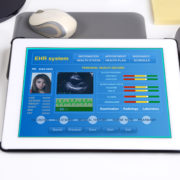Best Practices to Upgrade EHR for Physician Usability
There is no shortage of reasons to upgrade the EHR for your orthopedic practice. Specialty EHR systems improve everything from compliance to patient treatment to financial management. So you may have decided to upgrade to a new system. But you may be concerned about one major stumbling block – your physicians.
The medical community was far behind in technological changes for decades for a reason – many physicians were reticent to upgrade when their current treatment was comfortable and effective. And many physicians feared that new technologies would actually compromise patient treatment. What we know now is that a good EHR system can compliment excellent care. But it needs to be implemented effectively. So your protocol in training physicians is a key point in reaping the benefits of your system.
Better EHR Protocol for Physicians
Your orthopedic physicians already have a great deal of expertise in their field. But not every physician is technologically inclined. The key to developing protocol is in making certain that all physicians follow suit. The system only works as well as it’s used – if a number of physicians don’t use all of the facets of your EHR program, it may mean lapses in information. Here are some recommendations to make implementing a new EHR system easier on physicians and more seamless for the overall organization.
- Assess Current Protocols. The first step is in assessing what your physicians do currently. This will give you a clear picture of your physician’s workday, how information is collected and stored, and wherein the process improvements can be made.
- Discuss the Process With Physicians. The physicians in your practice should be consulted about how the EHR system is used. They have a set protocol for treating patients and may have concerns about how new systems will impact their ability to focus on the patient. With a specialty EHR system in place, many of these concerns may be accounted for in the program itself.
- Offer Training. Physicians often worry about glitches or lag time learning a software and how that will impact their ability to stay on schedule and best use their time. Training will help them feel more secure using the new upgrades. It will also offer them an accessible way to answer questions they may have during implementation.
- Develop In Office Support. Many tech-savvy orthopedic physicians will easily master new systems, but it helps to have staff on premise who are experts in the software. This allows physicians to concentrate on their patients and treatment without taking an inordinate amount of time out to deal with technical issues, should they arise.
There’s no question that your office EHR needs to meet regulatory requirements in order to stay in compliance. They also offer your practice excellent tools in patient care and practice management.











